Meet Our Fellow: Kwabena Opoku-Agyemang
AAAD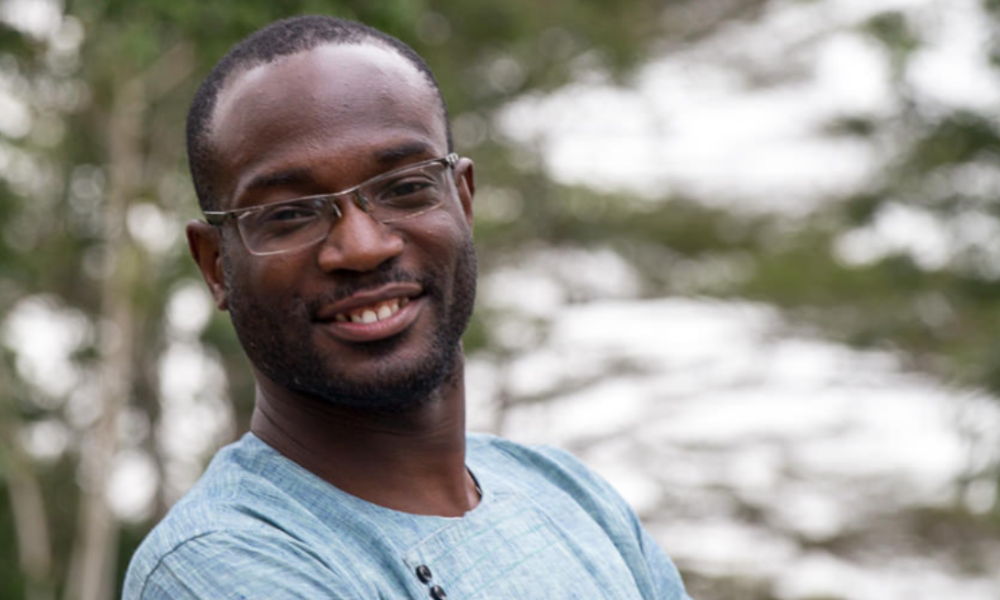
SUMMARY: The AAAD Studies Center and JMU Libraries partnered to establish three AAAD Studies Fellowships for scholars from the Global South. One of these fellows, Dr. Kwabena Opoku-Agyemang, a lecturer in English at the University of Ghana, participated in a Q&A with graduate assistant, Morgan Lyle.
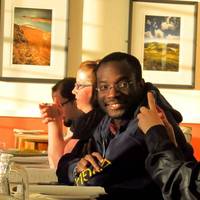 2021-2022 AAAD Studies Fellow, Dr. Kwabena Opoku-Agyemang is a lecturer in English at the University of Ghana and is the Academic Director of School for International Training Ghana. He earned his doctoral degree from West Virginia University after prior studies at the University of Ghana. His scholarly interests, which include the analysis of digital forms in African literature, have appeared in journals like Research in African Literatures as well as in peer-reviewed edited volumes. He has also guest-edited special editions of Journal of Gaming and Virtual Worlds and Postcolonial Text and is on the editorial board of journals such as Hyperrhiz and Tydskrif vir Letterkunde.
2021-2022 AAAD Studies Fellow, Dr. Kwabena Opoku-Agyemang is a lecturer in English at the University of Ghana and is the Academic Director of School for International Training Ghana. He earned his doctoral degree from West Virginia University after prior studies at the University of Ghana. His scholarly interests, which include the analysis of digital forms in African literature, have appeared in journals like Research in African Literatures as well as in peer-reviewed edited volumes. He has also guest-edited special editions of Journal of Gaming and Virtual Worlds and Postcolonial Text and is on the editorial board of journals such as Hyperrhiz and Tydskrif vir Letterkunde.
AAAD graduate assistant, Morgan Lyle (MA '22) sat down with Opoku-Agyemang to discuss his scholarship and teaching.
Q: Tell us a little bit about yourself.
"I grew up in Cape Coast, which is a historical town that has become an educational hub in Ghana. I had my early education there before moving to Accra for my undergrad degree at the University of Ghana. After a masters degree from the same institution, I traveled to the USA to undertake another masters degree and then a PhD at West Virginia University."
Q: When did you discover you had an interest in English?"My parents are both professors in English, and I grew up enjoying reading. I, therefore, had an early interest in English and liked to understand the motives behind the actions of various characters in novels. I also liked to listen to oral folktales that my parents would tell at night."
Q: What are your specific academic interests?
"I am interested in African digital literature, which is literary and creative expression online work that is created and accessed on digital platforms such as social media, blogs, apps, etc."
Q: What classes do you typically teach?
"At the graduate level, I teach a research methods class, postcolonial literature, and I co-teach an advanced seminar in African literature with Professor Kofi Anyidoho. At the undergraduate level, I teach literary theory, new literatures in English, and an Introduction to African Literature Course."
Q: Why is your area of study important?
"My area of study is important because digital technology is increasingly becoming the most common means by which Africans produce and engage with literary work. 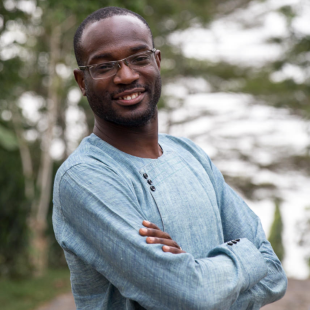 As such, it is crucial to understand the implications of being able to, for example, publish work online without struggling through the conventional gatekeeping problems that plagued older African writers. It is also important to understand how young African writers imagine their continent in a time when social media and digital technology dramatically alter the ways in which we relate with the world around us."
As such, it is crucial to understand the implications of being able to, for example, publish work online without struggling through the conventional gatekeeping problems that plagued older African writers. It is also important to understand how young African writers imagine their continent in a time when social media and digital technology dramatically alter the ways in which we relate with the world around us."
Q: How do you go about doing research on African electronic literature and video games?
"I read or play the material and then think usually about thematic connections that
underpin the nature of the texts that I have engaged with. I also try to connect these new media
forms to older literary modes of expressions to see how they differ from (and also enhance)
tradition."
Q: How does your work translate to the United States euro-centric study of literature? Where does it fit into the conversation? Or, how does it shift the conversation?
"My work critiques euro-centric scholarship by centering African modes of learning and being. I
typically displace western thought by not making my work necessarily be seen as responding to
such forms of thinking. However, I do not try to make my work be against other cultures; I can
also let my work speak in conversation with such other cultures to show how important African
studies is. Again, I use African philosophical thought to underpin my work. One of such ways of
thinking is the Sankofa concept, which emphasizes the importance of curating history and
tradition in order to fashion an important African sense of identity."
Q: What is your favorite topic within your area of study to explore?
"I like studying short stories such as submissions on the website Flash Fiction Ghana. I enjoy seeing how young writers use minimal space to tease out important themes in their work"
Q: What is something you want people to take away from your work?
"I would like people to appreciate the force of African thought, in the sense that ideas from the continent are complex and relevant both on and off the continent. I also like for people to appreciate how young writers especially are able to harness the potential of digital technology to create work that speaks to their own worldview."
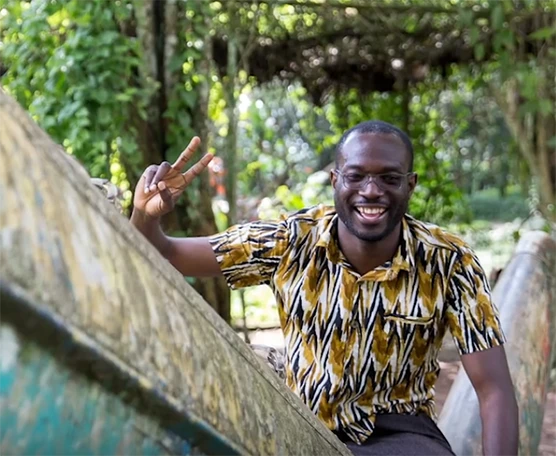
All of the AAAD Studies Fellows will be presenting tomorrow at 10am virtually on the Africana Studies Workshop panel. Opoku-Agyemang will be presenting, "Beyond Oral/Digital: Ghanaian Electronic Literature as a paradigm for African Digital Textuality;" Mshai Mwangola will be presenting "The Fabric of our Lives: Leso as Document;" and Jane Mutune will present "Can On-Farm Wood Meet Global Wood Supply and Save Tropical Forests? A Review." To access this free virtual panel, visit the conference website (https://sites.lib.jmu.edu/aaadjmu/) and register as an attendee.
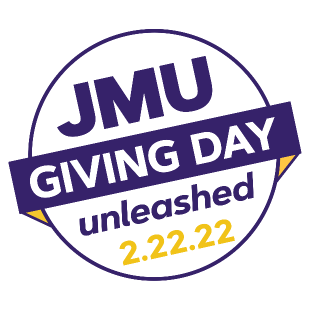 The AAAD Studies Center relies heavily on donations from the community to support our programs like the AAAD Studies Fellowship. Giving Day, JMU's largest fundraising event of the year, will be this Tuesday, February 22.
The AAAD Studies Center relies heavily on donations from the community to support our programs like the AAAD Studies Fellowship. Giving Day, JMU's largest fundraising event of the year, will be this Tuesday, February 22.
